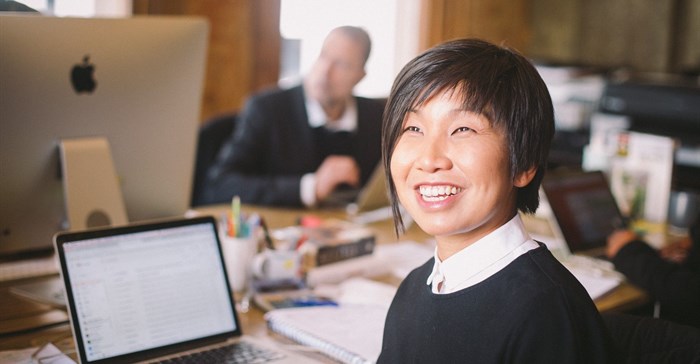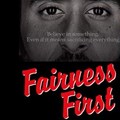Marketing & Media trends
Industry trends
BizTrends Sponsors
Trending



 Does anyone know what content is any more?Justine Drake
Does anyone know what content is any more?Justine Drake

Jobs
- Marketing Manager Johannesburg
#BizTrends2019: Embracing uncertainties and change to survive 2019

State capture forced a change of guard in our government. Accounting scandals rocked, forced everyone to assess how we can ensure tighter corporate governance. The Facebook data privacy debacle forced us to question legitimacy of information online and our digital behaviours.
Changing client requirements forced WPP to streamline their companies and change their direction.
Will 2019 be as tough and uncertain? Yes, it most certainly will be as difficult as 2018. The world order that we knew has been turned upside down. Change is inevitable. Everybody wants growth, but not change, and you can’t have one without the other. Having worked as a strategist in Asia, I’ve learned that there is no such thing as a 12-month plan.
It’s important to try to create one, but expect it to change before you even implement it, so it’s even more important to be willing to change and adapt with the changing situation. And if you want to win, drive that change. Don’t wait for it.
What changes should you make to drive your business and brand forward in 2019?
Don’t look at the big players. Look at the small ones.
I’m excited to see how brands such as Tyme Digital, Bank Zero, Simply, and Pineapple can disrupt the financial category. Real estate agencies are being undercut by startups like Leadhomes and HouseMe.
Most big corporates feel that these small players will not be a threat, because they are small. But consider this – Capitec went from a challenger brand targeting a segment considered “not worth it,” to becoming the biggest player in the category (based on number of customers) within 20 years.
This shows that it is possible to break through and win with a value proposition that is simple and provides a clear benefit for consumers.
If you want to innovate, look at the nimbler players who are targeting niche segments. Those are the businesses you should learn from. And be afraid of.
Don’t put all your investment into digital experience. Re-focus on in-store experience.
In the last five years, businesses have been racing to invest in their digital and e-commerce platforms. Big capex have been poured into this area, some may say not enough.
However, businesses must not forget that e-commerce is still 1% of the retail value in SA. Yuppiechef had to move to brick-and-mortar to grow. They realised that South African consumers still want the physical touch with the products and the brand.
It is interesting to see how Apple defined their stores as their “largest product”, not merely a retail channel.
What businesses need to change is their perspective of their stores’ role – it’s not a place people go to, just to buy your products, it’s a place where they go to experience your brand. They may end up buying your product online, in your store.
Look at Alibaba’s supermarket, Hema as an example of a “new retail,” where shoppers need to download their Alipay app to shop in the store.
Using the app (with free Wi-Fi in-store), consumers can scan QR codes to get more information about products, order products to be delivered to your location within 30 minutes (if you live within 3km of the store), order food at their food counters, and be served by robots and of course, pay for your shopping.
What we need is to reimagine our stores as a “software”, not a hardware.
Don’t look at how much a product is worth. Look at how much a consumer is worth.
In today’s competitive environment, where creating a unique product is almost impossible, what creates differentiation is the experience and value-add that you build around your products. Consider Discovery Health. Without Vitality, their offering is similar to competitors.
The world has moved to a subscriber- or user-based model (Uber, Airbnb, Netflix, Amazon, Google, Adobe) where business valuation is based on their ability to grow their subscriber base, the value of each subscriber and how long they can keep each subscriber.
Consider how you can change the way you look at your business. Can you create a user base who pay you a monthly subscription? How can you can create value for each user, so they will pay you more over time?
Don’t just look to West. Look to the East, as well.
No, I’m not saying this because I’m Malaysian, but because China could be the world’s biggest economy as soon as 2020, and by 2030 Asian GDP will account for roughly 35% of global GDP (Standard Chartered Bank Report, Jan 2019).
More importantly, they have more similarities to South Africa from an economic, historical and political context. So businesses and startups address similar issues to ours. Some interesting examples:
- GoJek started as a ride-hailing service (Uber for bike rides) in Indonesia and has moved to become a one-stop app, where members can make online payments and order everything from food and groceries to massages.
- Lalamove is Asia’s leading same-day delivery/courier service that is fashioned similarly to Uber. It has a valuation of almost US$1bn. They aim to change the landscape of logistics.
- In a region where parents spend a lot of money for after-school tutoring services for their children, Snapask is hoping to take a share of that lucrative market by giving a mobile platform for students to connect with qualified tutors and receive on-demand academic support.
- Webank, China’s first digital bank, is planning to build a world-class blockchain-based business ecosystem.
Don’t think about how you can get away with things. Think about how you can be better, more ethical.
With all the scandals that rocked corporates in this country, from KPMG’s role in state capture to Enterprise’s inaction in revealing the fact that their products were not safe early enough, consumers have become more suspicious of what they are being told.
Couple that with the ability for everyone to access information through the internet, and it is becoming more difficult for companies to hide their dodgy or unethical practices from the public.
To try to avoid a scandal is to actually aim to get better at doing good business and push for transparency. It is tough and scary, because people’s expectations have increased and will keep increasing, but it really is the only way to build a sustainable business - I don’t mean just an environmental-friendly but a business that lasts.Business leaders need to start changing their business model so they are for people, planet and profit.
Don’t just think about data. Think about the human and emotion behind the data.
In our quest for more data, we can sometimes be blinded by numbers and information without actually interrogating what drive those numbers. Technology has changed the way brands can interact with people and capture information about the consumer.
But sometimes, the cashier, the sales person and the customer service consultant can provide more insights than any data. Sometimes, gut feeling can help us make better decisions than relying just on data.
Ultimately, a fundamental and universal human truth is that we all want human connections. And for brands to win, we need to create an emotional connection with our consumers. Technology may help make our products easier to access and find. Technology may help us segment our shoppers.
Nike’s ‘gangsta’ move of using Colin Kaepernick probably didn’t come from a research but from understanding what the brand stood for and the kind of talkability they can create. And their line “Believe in something. Even if it means sacrificing everything.” came from the magical touch of a copywriter.
In a world of AI, smart technology and big data, we sometimes need to remember to rely on the magic of our gut and heart.
So yeah, if you want a smooth ride in 2019, I suggest you move to some monastery in the mountain in Nepal. Or else, you’ll have to buckle up for the rollercoaster ride and make sure you’re in the driver seat, to decide which way you want the ride to go.













